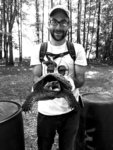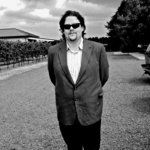Studying the humanities instilled in Justin Lake a deep sense of self and place in the world. He came to see himself as someone who could take part in society, make changes and have a voice.
“I …
This item is available in full to subscribers.
We have recently launched a new and improved website. To continue reading, you will need to either log into your subscriber account, or purchase a new subscription.
If you had an active account on our previous website, then you have an account here. Simply reset your password to regain access to your account.
If you did not have an account on our previous website, but are a current print subscriber, click here to set up your website account.
Otherwise, click here to view your options for subscribing.
* Having trouble? Call our circulation department at 360-385-2900, or email our support.
Please log in to continue |
|


Studying the humanities instilled in Justin Lake a deep sense of self and place in the world. He came to see himself as someone who could take part in society, make changes and have a voice.
“I felt like a more responsible citizen,” he said.
Lake is a 36-year-old single father and a graduate of the Jefferson Clemente Course, a branch of the Clemente Course in the Humanities that offers college courses to low-income individuals. He’s a naturalist who teaches all over Jefferson County, and he’s now working on getting a teacher’s certificate.
Erik Montoya, age 37, also is a single father who benefited from the free classes in the humanities.
“I know it sounds corny, but it really was a life-changing experience for me,” said Montoya, who is working to get a bachelor’s degree so he can teach history.
Their stories are not uncommon for Clemente students, said Lela Hilton, a national director who founded the Jefferson County branch of Clemente.
“They get that fire from education, and figure out what to do,” she said. “I think that all of our students see that liberal arts and the humanities are incredibly practical.”
Clemente offers its courses free of charge to qualifying individuals, and this Friday, June 23, is hosting NPR’s “Says You!” team to help benefit the program.
ERIK MONTOYA
Montoya has been living in the Pacific Northwest for most of his adult life. “I consider this my home, and I love it here,” he said.
He dropped out of high school in Oregon after his first year, but it wasn’t for a lack of loving to learn, he said.
Montoya had grown up reading – fantasy, science fiction and Shakespeare. “I was always really into Shakespeare,” he said. In his freshman year, his English teachers asked him to help tutor other students.
But unhappiness with high school culture coupled with family issues such as poverty and moving around for reasons he can’t even remember – it’s a family joke that there was “too much Gypsy” on his mother’s side – brought Montoya out of high school and into working full-time.
Eventually, he came to the Olympic Peninsula.
While working at Peninsula Video in Port Hadlock, he met Hilton, who frequented the shop.
He would give her suggestions on movies to watch.
“He sort of was my go-to person,” said Hilton. “He'd suggest things outside my box.” She notes “Latcho Drom” and “Waiting for Guffman” – “very quirky, wonderful, good stuff.”
Hilton told Montoya about the course for low-income people, and encouraged him to join. “[It] sounded pretty amazing,” Montoya said.
He wasn’t able to join right away, but eventually did.
A CRITICAL THINKER
More than just showing him he could do college-level work – prior to that, he had never felt he was very educated – Clemente helped Montoya become a critical thinker, and a more well-rounded person, he said. And it propelled him to pursue more education.
Montoya was struck by the setup of the classroom alone, with students sitting in a semicircle rather than in rows. “You didn't feel so much like a student as you felt like a participant.” And, there was free food. “You could go in there and you could have something to eat.”
At every meeting, they discussed what they had read in a question-based, Socratic learning style.
One week it might be poetry, another week art history or literature.
“You could give your opinion, and what [the readings] meant to you and what you thought about it,” Montoya said. “It was very intellectually stimulating.”
The classes introduced him to works he’d previously never heard of.
One piece that was particularly eye-opening was Thomas Jefferson’s “Notes on the State of Virginia.”
“It was shocking,” said Montoya of Jefferson’s piece and its “vicious” statements about slaves. “It really challenged my world view of what I thought the Founding Fathers of the country were.” Some of his classmates, he said, were at first unwilling to believe the writing was real.
Another work that affected him was the Hindu scripture the “Bhagavad Gita.”
“I've never read anything like that,” he said. “I bought the whole epic – the ‘Mahabharata’ – it really became something of a personal interest to me after reading it.
A HISTORY NERD
Since graduating from the course, Montoya has earned his GED and associate's degree, and is now working on getting a teaching certificate through an online bachelor's degree program, which he plans to complete in the next two or three years.
“He’s still pushing away to make this happen – it’s quite phenomenal,” said Hilton of what Montoya has been able to accomplish.
He’s also a caregiver for his mom, has three kids, and tutors Spanish, English and history at Peninsula College.
“I’m a super history nerd,” he said. “Eventually my goal is to get a Ph.D. in history so that I can teach at a college level.”
JUSTINLAKE
Lake is originally from eastern Michigan, where he grew up camping and fishing. A negative experience in the public school system compelled him to drop out and get his GED instead, and take off on his own – wandering and hitchhiking across the country. He explored everywhere from New Orleans to Nova Scotia, he said, and ended up coming to the Northwest for an Outward Bound course in longboat sailing and mountaineering.
Eventually, he ended up on the Olympic Peninsula.
While living in a little cabin in the woods and working at Red Dog Farm, he heard from Hilton about the free classes offered through the Clemente Course.
“I had always wanted to have that college experience,” said Lake, “but I never felt it was something that I could afford,” he said.
A self-described critical thinker, Lake said he has always been driven to learn about ideas and study on his own. He’s explored, in particular, Chinese philosophy and Taoism, he said.
“But I had never studied the humanities before.”
A NEW PERSPECTIVE
The Clemente Course empowered him to continue his education, and it helped him learn to view himself as someone who could instill change.
“I learned a lot from studying history,” he said, specifically noting American history.
“I saw more of why things are the way they are today, and where my place is in it all,” he said.
Lake also was fascinated with art history, and gained new perspectives from reading about different cultures.
In particular, Clemente’s application of the Socratic method – a process of learning that he found engaging – instilled in him a vastly different idea of what education could be like.
“It gave me a new perspective on teaching,” he said.
And teaching others is now what Lake does.
Inclined to live a life that emphasized understanding natural history and gaining survival skills, Lake had always thought he’d spend his life in the forest. “I had no interest in being part of society."
A TEACHER
Taking part in Clemente, coming to understand himself as a responsible citizen and gaining a new appreciation for education made him realize he could teach those wilderness skills he’d gained through experience.
After Clemente, he went to CedarRoot School, Wilderness Awareness School and elsewhere to learn more about teaching those topics, and from there started working in private schools. Since then, he’s come to work for a multitude of different organizations in Jefferson County – places like the Washington State University Extension, 4-H, YMCA, Quilcene Public School’s outdoor education program, the Community Boat Project, CedarRoot and also at the Pokagon Band of Potawatomi – of which his daughter is a member – in southwest Michigan.
“Kind of all over the place,” he said.
“I feel really passionate about teaching and learning and sharing what I have to offer with youth,” he said.
And he found that Socratic questioning style he’d learned at Clemente to be useful as a way to guide students to discover what they are most passionate about.
“The questioning process is great for drawing out their interests,” Lake said.
“I've seen him really take that sense of being inquiring and going in the direction he wanted to go, but with a lot more depth and direction than he had before,” said Hilton.
Now, he’s looking into getting a teacher’s certificate from a state program. That certificate would mean salaried jobs, and not having to work so many jobs to make ends meet. “That’s the next step,” he said.
THOUGHTS ON THE HUMANITIES
“No matter what someone decides to do in their life” – be it a dentist or a doctor or a police officer, Montoya said – “the humanities will make them a more well-rounded person.”
By teaching critical thinking, studying the humanities can rid the “cognitive dissonance that people walk around with in the modern-day world,” he said.
“The aim of the Clemente Course is to make people feel a sense of self-worth and dignity, and they do an excellent job,” said Lake.
The Clemente Course in the Humanities in 2014 received the National Humanities Medal, presented by President Obama, and the local branch was awarded the Humanities Washington Award in 2007.
Clemente provides free, accredited college courses in the humanities to those marginalized by economic hardship and adverse circumstances. To learn more, visit jeffersonclemente.wordpress.com and
clementecourse.org.